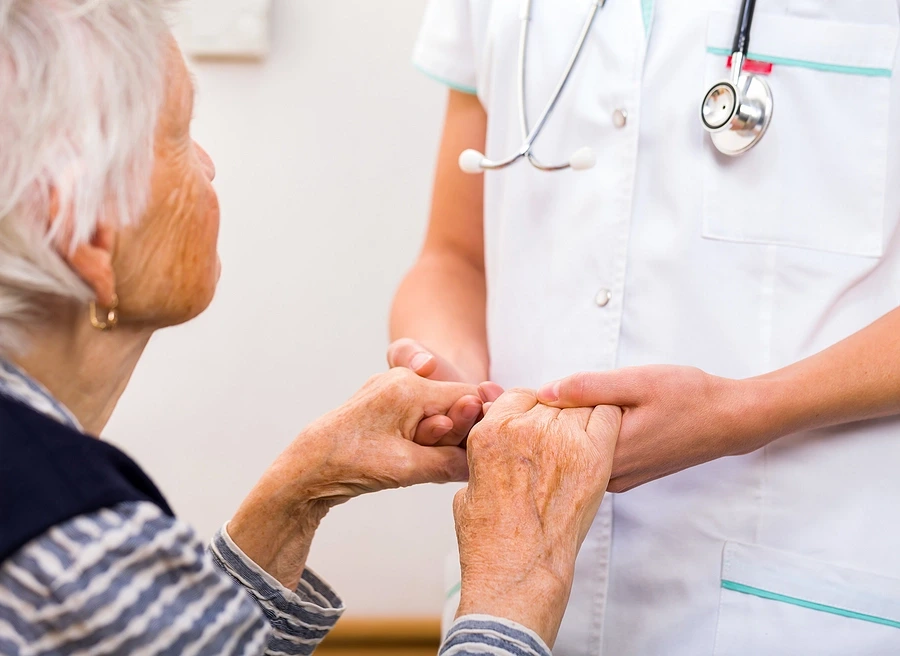Common Injuries Resulting From Nursing Home Abuse

Nursing homes are meant to provide safe, supportive care for elderly residents. Unfortunately, abuse and neglect still occur in some facilities. When these incidents happen, residents can suffer serious physical and emotional harm. Family members often struggle to identify signs of abuse, especially when injuries may appear accidental or consistent with aging. Understanding the common types of injuries associated with nursing home abuse can help families take action to protect their loved ones and seek legal recourse when necessary.
Physical Injuries From Neglect and Abuse
Physical injuries are among the most visible consequences of nursing home mistreatment. They can result from both intentional abuse and inadequate care. Common injuries include:
-
Bruises and contusions – Frequent unexplained bruising, especially in areas not prone to accidental bumps, may indicate physical abuse.
-
Broken bones and fractures – Falls caused by improper supervision or rough handling can lead to fractures in the arms, legs, or ribs.
-
Head injuries – Concussions or more severe traumatic brain injuries can occur if residents are dropped, pushed, or left in unsafe conditions.
-
Bedsores and pressure ulcers – Neglecting to reposition immobile residents or failing to provide proper skin care can result in painful sores that may become infected.
-
Burns or scalds – Accidental or intentional burns from hot liquids, heating devices, or improper bathing practices are serious indicators of abuse.
These injuries can cause long-term pain, reduced mobility, and increased vulnerability to other health complications. Early detection is critical for both medical treatment and legal action.
Emotional and Psychological Harm
Nursing home abuse is not limited to physical injuries. Emotional and psychological harm can be equally damaging. Residents may experience:
-
Anxiety and depression – Constant fear of staff mistreatment or isolation can lead to serious mental health issues.
-
Sleep disturbances – Stress and trauma may disrupt sleep patterns, affecting overall health.
-
Withdrawal and social isolation – Residents may avoid interaction with staff or family due to fear or embarrassment.
-
Post-traumatic stress – In cases of severe abuse, residents may relive traumatic experiences or display heightened agitation.
These psychological effects often accompany physical injuries and can compound the overall harm experienced by residents.
Medical Complications from Neglect
Neglect, a common form of nursing home abuse, can lead to serious medical complications:
-
Dehydration and malnutrition – Failing to provide adequate food and water can weaken the immune system and exacerbate existing conditions.
-
Infections – Bedsores, untreated wounds, and poor hygiene increase the risk of infections that may become life-threatening.
-
Medication errors – Skipping doses, giving the wrong medication, or administering excessive dosages can cause severe health issues.
-
Falls – Lack of supervision, unsafe environments, and improper assistance with mobility can result in falls that cause fractures, head injuries, or internal bleeding.
These complications can significantly reduce a resident’s quality of life and may accelerate the progression of chronic illnesses.
Signs That May Indicate Abuse
Family members should be alert to patterns of injury or behavior that suggest nursing home abuse. Red flags include:
-
Unexplained or frequent injuries
-
Sudden changes in mood or personality
-
Poor hygiene or unsanitary living conditions
-
Weight loss or signs of malnutrition
-
Resistance to being left alone with certain staff members
Documenting observations and sharing concerns promptly with medical professionals or state agencies is important for protecting residents.
Legal Considerations in Nursing Home Abuse Cases
In South Carolina, victims of nursing home abuse may have legal grounds to pursue claims for compensation. These claims often fall under medical malpractice, neglect, or personal injury law. To succeed, families generally must show that the facility or staff failed to meet the standard of care, and that this failure caused harm. Evidence such as medical records, photographs of injuries, witness statements, and documentation of prior complaints can strengthen a case.
Statutes of limitation apply to these claims, so timely action is critical. Consulting with an experienced attorney can help families understand their rights, navigate the legal process, and seek damages for medical expenses, pain and suffering, and other losses.
Preventing and Addressing Nursing Home Abuse
Families can take steps to minimize the risk of abuse and respond quickly if concerns arise:
-
Research facilities thoroughly – Check state inspection reports, ratings, and reviews before selecting a nursing home.
-
Visit regularly – Frequent visits allow families to monitor care and identify potential issues early.
-
Communicate with staff – Establishing relationships with caregivers helps ensure open dialogue about resident needs.
-
Document concerns – Keep detailed records of injuries, behavioral changes, and interactions with staff.
-
Report abuse promptly – Contact the South Carolina Department of Health and Environmental Control (DHEC) or law enforcement if abuse is suspected.
Proactive involvement can protect residents from further harm and support any necessary legal action.
Conclusion
Nursing home abuse can cause severe physical, emotional, and medical harm. Bruises, fractures, bedsores, medication errors, and psychological trauma are common consequences. Families play a critical role in identifying signs of mistreatment, documenting incidents, and seeking accountability. In South Carolina, victims of nursing home abuse may pursue legal action to recover damages and protect loved ones. By understanding the types of injuries that often result from abuse and taking timely steps, families can safeguard their relatives and ensure that nursing homes meet the care standards residents deserve.

